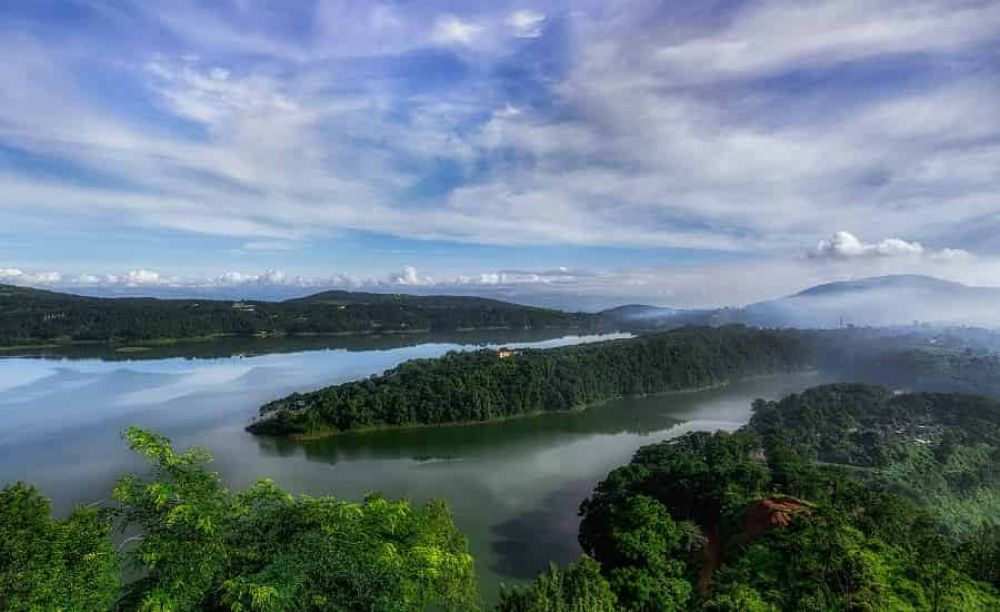

Nongpoh, the picturesque town situated in the Ri Bhoi district of Meghalaya, India, has become a popular stopover for tourists traveling to and from the state capital, Shillong, and the famous wettest places on earth, Cherrapunji and Mawsynram. The serene beauty of Nongpoh and its cultural vibrancy are the primary magnets for visitors seeking tranquility amidst nature. With a blend of lush green landscapes, unique flora and fauna, and the warmth of the Khasi community, Nongpoh promises a memorable experience for every traveler.
Historically, Nongpoh was less recognized as a tourist destination and more as an administrative center. However, with the growing interest in Meghalaya's natural beauty in the late 20th century, tourists began to explore beyond the classic attractions of Shillong and Cherrapunji. Nongpoh, being ideally located on the National Highway connecting Guwahati to Shillong, gained attention as a peaceful retreat, away from the steadily increasing urban expansion.
Tourism in Nongpoh slowly picked pace with visitors seeking less commercialized spots and genuine cultural interactions. The town's proximity to the serene Umiam Lake, also known as Barapani, contributed significantly to its growing popularity. The scenic location became a favored spot for picnics, boating, and water sports, drawing not just tourists but also locals looking for a getaway.
In recent years, Nongpoh's tourism scene has seen a shift towards sustainable travel and community-based experiences. Travelers are now more inclined to seek homestays and participate in local life – a trend that supports local economies and promotes responsible tourism. Nature walks, bird watching, and visits to nearby orchards are among the favored activities that align with this sustainable travel trend.
Furthermore, as wellness travel gains momentum, Nongpoh's tranquil environment makes it an emerging spot for wellness retreats, with a focus on yoga, meditation, and reconnecting with nature. The town’s serene backdrop lends itself to rejuvenation, drawing tourists looking to escape the pace of city life.
Another trend is the rise in food tourism, where culinary enthusiasts come to savor authentic Khasi cuisine, which is unique to Meghalaya and largely unexplored by the wider world. Local eateries and roadside stalls offer tourists a taste of traditional delicacies and the chance to indulge in an integral part of the Khasi culture.
Looking ahead, Nongpoh is set to continue evolving as a tourist destination that balances growth with sustainability. The development of infrastructure – such as better roads, enhanced accommodation options, and tourist-friendly services – is ongoing, aiming to cater to the needs of the growing number of visitors while preserving the natural charm and cultural integrity of the region.
Public and private sectors are working to promote responsible tourism practices that ensure Nongpoh remains a pristine and welcoming destination for future generations.
Meanwhile, initiatives to engage tourists in conservation efforts are emerging, contributing to a broader awareness of environmental responsibility and garnering accolades for Meghalaya as a whole. With its unspoilt beauty and a focus on eco-friendly tourism, Nongpoh is poised to remain a beloved gem in the crown of Meghalaya's tourism landscape.